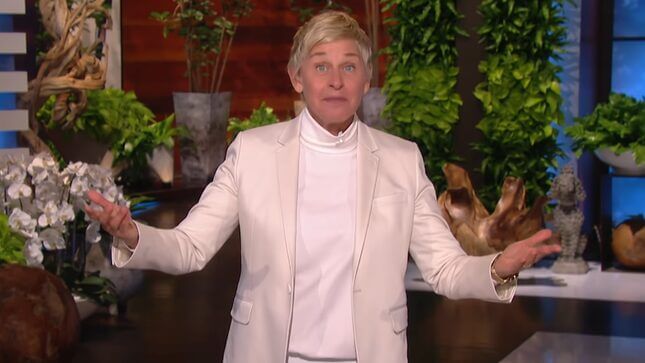What's An Apology Worth to Someone Like Ellen DeGeneres?
Latest

On Monday’s premiere of the 18th season of The Ellen Show, titular host Ellen DeGeneres apologized like she usually does: by distancing herself from blame. To an audience of entirely virtual faces, projected on television screen where the flesh and blood audience once sat, DeGeneres announced, “If you’re watching because you love me, thank you! If you’re watching because you don’t love me, welcome!”
The host went on to briefly mention how, this summer, there were “allegations of a toxic work environment at our show.” In the ensuing investigation, DeGeneres claimed she “learned there were things that happened that never should have happened, I take that very seriously.” It was another clever distancing of herself from the issue—that is, in July, Buzzfeed News detailed numerous allegations of racist behavior by top producers, as well as a set atmosphere plagued by toxicity and retribution. Alongside these allegations were other complaints from staff that they had been shafted by DeGeneres and producers amid the pandemic, facing extreme reductions in pay or a total lack of communication from the studio or host.
The confluence of chaos and harrowing accusations plaguing The Ellen Show is what made Monday’s monologue a particularly anticipated one. It was the first time since April that Ellen DeGeneres, the show’s creator and host, had publicly addressed any of the numerous allegations about the show’s work environment. (In late July, a letter she sent to her staff was obtained by the Hollywood Reporter, saying that she and the show will “correct the issues.”)
It was also the first time DeGeneres had so directly addressed longstanding public speculation about her behavior off-camera, save for a few disparate comments in interviews over the last few years. In the context of a dozen staff members speaking out over alleged racist and abusive working conditions, it’s hard not to scrutinize the intention behind her apology. DeGeneres told the audience that she is “starting a new chapter” with her employees. But for Hollywood’s most famous person, and one of the more powerful producers working, who can really hold Ellen DeGeneres accountable to the promises she made in her first monologue back on television?One word has remained a throughline in all of the reports about DeGeneres’s career, the allegations, and their impact on her public persona: “Nice.” It has become nearly synonymous with the name Ellen DeGeneres, growing over the last 20 years to encapsulate her brand and apparent mission. As I previously wrote, DeGeneres was once heralded by Hollywood, her audience, and the world at large, as the “nicest person on daytime television.” It’s no wonder then that she found herself hung up on this word in her first monologue back on-air.
-

-

-

-

-

-

-

-

-

-

-

-

-

-

-

-

-

-

-

-

-

-

-

-

-

-

-

-

-

-

-

-

-

-

-

-

-

-

-

-








































